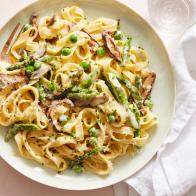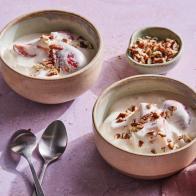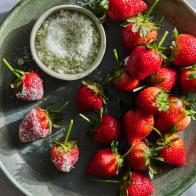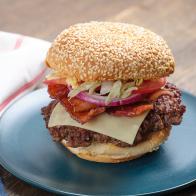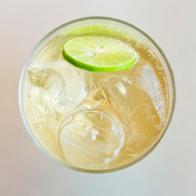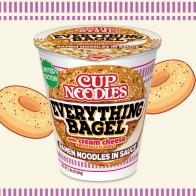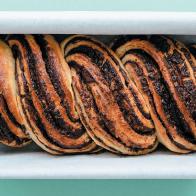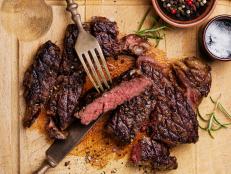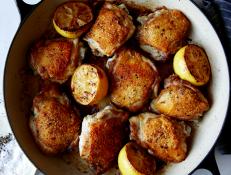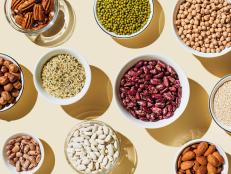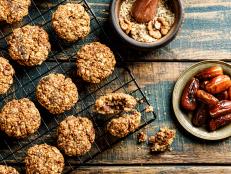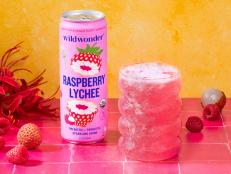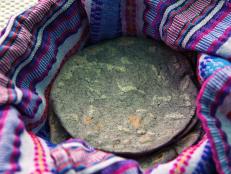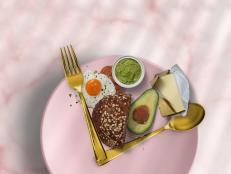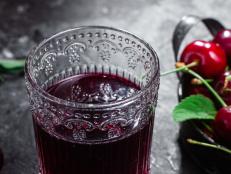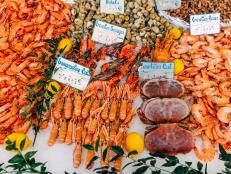Unexpectedly Helpful Foods for Weight Loss
Focusing on these foods may help you peel off the pounds more quickly.

Diets don't generally work long for the long term. Research has shown that severely cutting calories slows the metabolism and that once someone "goes off" their diet, the weight usually comes back, along with a few additional pounds. But avoiding weight-loss diets doesn't mean you have to be anti-health.
In fact, anti-diet health habits are smart for everyone, whether you are trying to lose weight or not. When people focus on foods that nourish their bodies, they're likely to feel satisfied and have fewer cravings for foods that aren't as rich in nutrients. Of course, they still give themselves permission to enjoy favorites without any guilt.
The key is to develop those habits. And getting into a routine of eating more of the following foods will likely help you maintain a stable weight — a weight that's just right for your lifestyle.
Protein
Protein-rich foods help prevent muscle loss. This is especially important because adults lose about 3% to 8% of their muscle mass per decade after age 30. As we lose muscle mass, our metabolism slows down. "Higher protein intake spaced throughout the day may help decrease body fat, increase muscle mass and potentially boost protein metabolism," explains Apeksha Gulvady, PhD, an independent nutrition researcher in Dallas. Specifically, researchers have found that increasing dietary protein above current recommendations and spacing it evenly throughout the day, instead of having one large meal at night, may lead to better body weight management.
There's another reason protein may help with a healthy weight: satiety. In one study, people who ate a protein-rich breakfast (25 to 30 grams of protein) were less hungry throughout the day. Here are some breakfasts that deliver about that same amount of protein:
- 2 eggs in pasta sauce with bell peppers (shakshuka) over 1 cup quinoa
- 3-egg-white scramble with mushrooms, 1 slice whole-grain toast and 1 cup milk
- 3 ounces low-sodium deli beef on whole-grain bread with tomatoes and pickles
- 1 cup Greek plain yogurt with fruit and 1 ounce peanuts
- 1 scoop whey protein powder in a green (spinach + banana + milk) smoothie
- Egg, cheese and Canadian bacon on whole-grain English muffin
- 2 tablespoons peanut butter on 2 slices whole-grain toast with chocolate soy milk
Fiber
Yes, fiber fills you up and can keep you fuller longer. But emerging science points to a more important reason to eat more fiber. "Overweight individuals on a low-calorie, high-fiber diet (containing 30 percent more dietary fiber than their previous diet) lose weight and gain microbiota diversity," say microbiologists Justin Sonnenburg, PhD, and Erica Sonnenburg, PhD, in their book, The Good Gut. They explain that foods with fiber help nourish the good bacteria and increase the diversity of the types of gut microbiota or microorganisms.
Foods with more soluble fiber are especially important for gut health. These include:
- Beans, including black beans, chickpeas, Great Northern and pinto
- Oatmeal
- Oat bran
- Barley
- Oranges and grapefruit
- Apples
- Strawberries
- Frozen green peas
- Potatoes
Fermented foods
Eating more fermented foods goes hand in hand with consuming more fiber. Both work together to "create an environment within the gut that allow microbiota to flourish. In return indicators of better health can result, including healthy weight," say the Sonnenburgs. Everyone's gut is unique, though, so it's important to consume a variety of fermented foods weekly.
Here are some of our fermented favorites:
- Plain kefir
- Sour cream and buttermilk — look for ones with "live and active cultures"
- Yogurt — with less added sugar
- Unpasteurized pickles — eat refrigerated brands, since jarred versions are pasteurized
- Refrigerated sauerkraut
- Kimchee
- Miso
- Tempeh
- Refrigerated kombucha
- Aged cheeses like cheddar and Gouda — these contain lactic acid bacteria; more aging matters because the longer a cheese ferments, the more probiotics it contains
Serena Ball, MS, RD, is a registered dietitian nutritionist, food writer and recipe developer. She blogs at TeaspoonOfSpice.com and is the author of the best-selling The 30-Minute Mediterranean Diet Cookbook. Follow her @TspCurry on Twitter and Instagram.
Related Stories:
